Here is something objectively thrilling: You, personally, get to elect three lawmakers to the Denver City Council this spring.
Most seats on the dais go to people who represent a geographic area of the city, and only people who live in that district can elect them. But two seats are at-large, meaning every voter in the city can vote for them -- and they're both up for election. What a time to be alive.
At-large lawmakers have a broader scope than their colleagues, not in terms of power, but in terms of responsibility. They account for the entire city, not just constituents in their neck of the woods.
Four candidates are challenging at-large council members Robin Kniech and Debbie Ortega: Tony Pigford, Jesse Parris, Lynne Langdon and Johnny Hayes. The top two vote-getters win.
Denverite has interviewed nearly every candidate running for nearly every seat May 7. It's fair to say that housing (including homelessness), transportation and development top out pretty much everyone's agendas. The at-large race is fundamentally the same.
Here is who's who.
City Councilwoman Debbie Ortega
Ortega has spent 24 of the last 32 years as a city councilwoman -- first as north Denver's District 9 rep and more recently as citywide official. She's running for her third and final term in that seat.
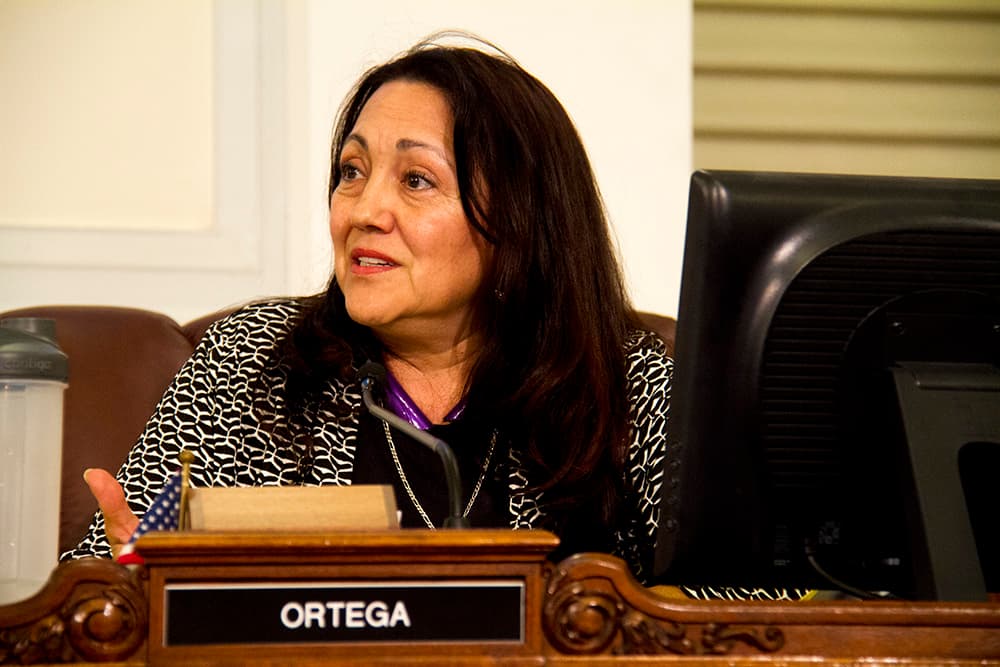
Ortega is betting on her experience as a longtime civic leader to push her through to another term, she said. As far as policies go, she wants to rein in what she considers one-off developments being built without enough "comprehensive planning."
Ortega has voted for and against changing building guidelines for individual properties, which often fuel the council's biggest controversies. But she wants to see a more "thorough" process, like the one that buttressed the massive River Mile project, become more common, she said.
"We have to be looking harder at the cumulative impacts of infrastructure on existing neighborhoods, displacement and gentrification," Ortega said. "We don't want to create a different nightmare that we're gonna have to deal with later."
Ortega is proud of the $2 million for affordable housing and other mitigations she's helped secure from the Colorado Department of Transportation, which is shoving a wider I-70 through Globeville, Elyria and Swansea. Back in 2016, Ortega was the only council member to vote against using city funds for the expansion.
If re-elected, she would keep watchdogging the process and fight for environmental justice, she said. A possible expansion of I-25 is on her radar as well. And she pointed to her work securing money for "left behind" neighborhoods in the nearly $1 billion voter-approved bond.
Ortega's experience and relationships are her legs-up, she told Denverite. As you can imagine, after 24 years as an elected official and even more as a mayoral appointee, she knows plenty of people and knows how the system works (and doesn't).
"The biggest issue is knowing how the city works, knowing that no one person can get changes by themselves," she said. "It takes working with your colleagues and people in the mayor's office."
City Councilwoman Robin Kniech
Kniech's eight years on the council have been characterized by some pretty sweeping policies. She's especially proud of the $15 minimum wage she set in motion (along with the Hancock administration) for city workers and many of its contractors. The new wage will benefit 8,000 to 10,000 workers, starting this year, but won't reach $15 until 2021.
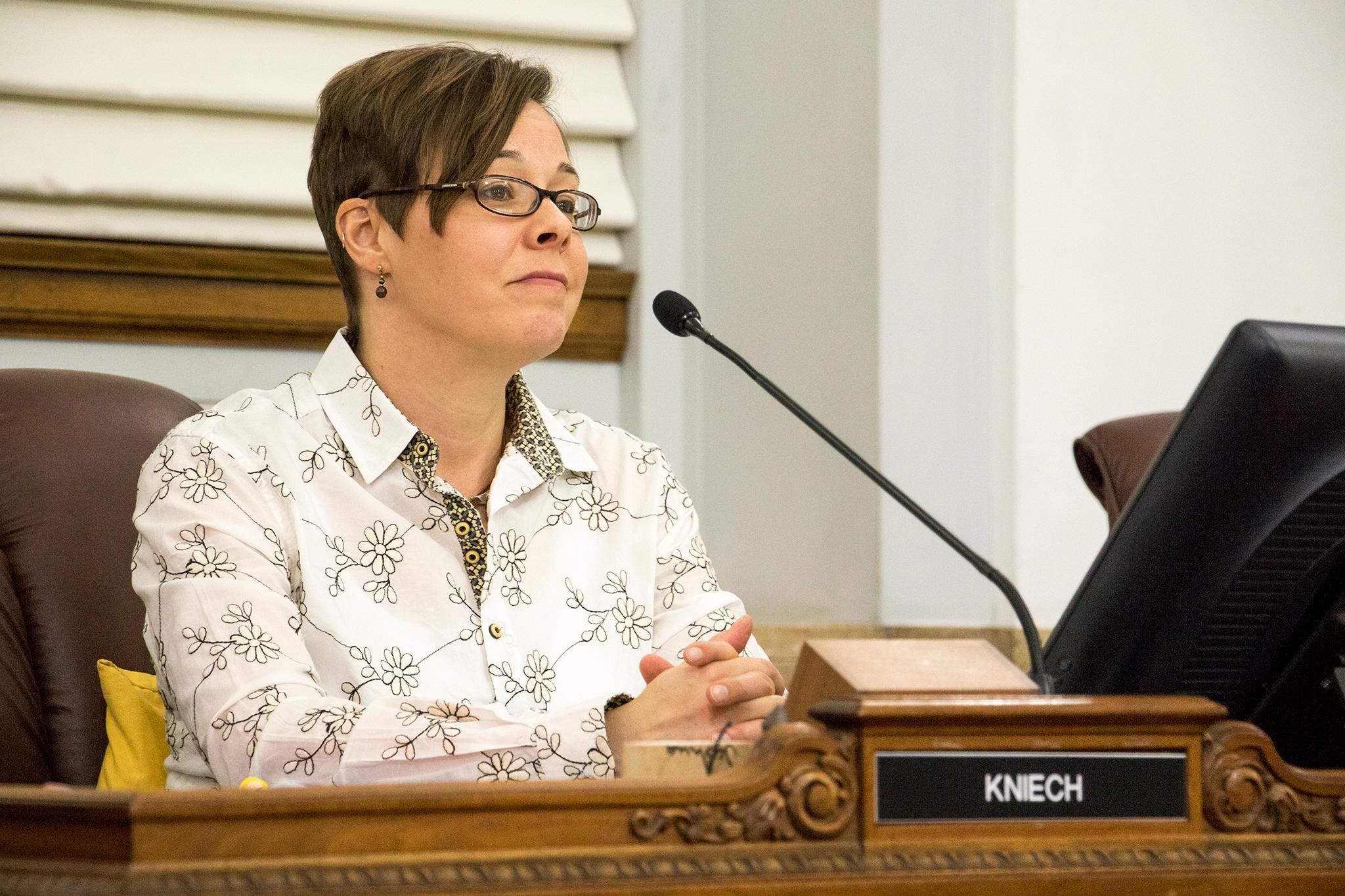
The two-term lawmaker is also proud of the "immigration defense fund" created in 2017 to aid people at risk of deportation because of the Trump administration's "immoral immigration policies," she said. She also galvanized support for an eviction defense fund and the city's first fund for affordable housing.
"Those policies are going to touch a lot of lives and live in perpetuity," Kniech said. "They'll live on far longer than I'll be in office."
Like her colleague (and opponent) Ortega, Kniech will rely on her understanding of a complex political and bureaucratic system that lives or dies on relationships, political know-how and timing. She does not take on consequential policies without partners -- advocates in the city and fellow electeds -- who can help bring them across the finish line, she said. Kniech said she knows she can't crack every nut and will only take on policies if she sees a path to getting them passed.
"I think that elections are really easy times to see the pain that folks are having and offer them the biggest, most dramatic promise you can to try to relieve it," Kniech said. "We have a lot of pain in our communities. ... What I've heard from folks is they want to see a really clear, really proven plan -- multiple approaches at the same time."
Some big priorities for her next term, should voters re-elect her: Coming up with a funding source for transportation -- particularly infrastructure for transit, biking and walking -- by 2020 to "support urban centers rather than supporting sprawl." She wants to continue work on housing and homelessness issues and work towards her "housing for all" platform.
Tony Pigford
Pigford is part of a contingent of first-time candidates looking to wrest control from established electeds and change Denver's trajectory. Sparked to run by the Ink! Coffee protests, he sees a city that's gotten away from supporting the general public's social, economic and health needs in favor of prosperity for the few.
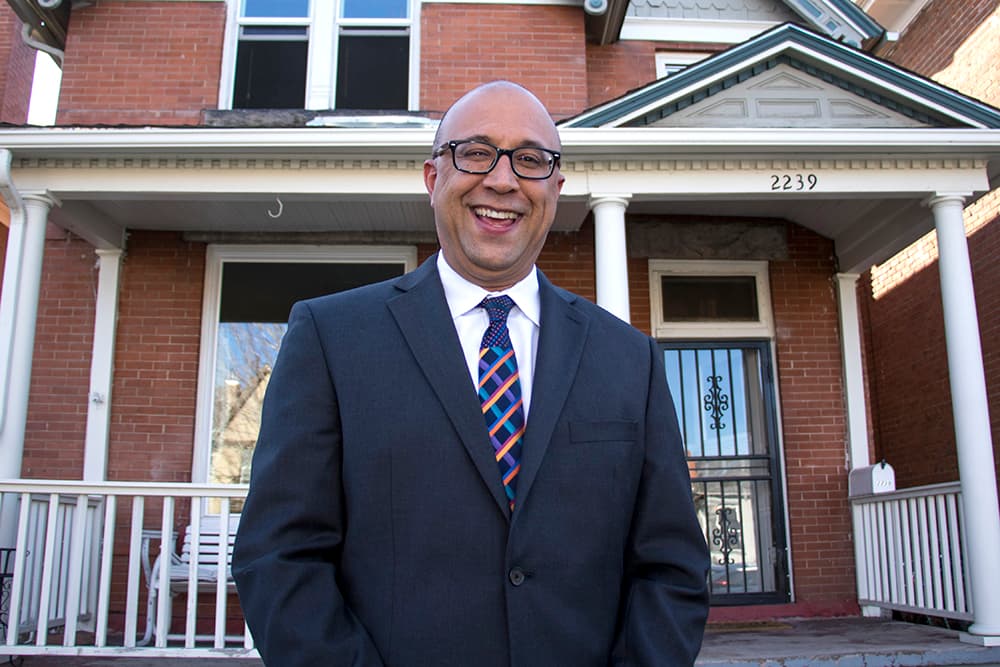
Pigford is the founding dean at Boys School of Denver and spends much of his time developing leadership in kids -- at least when he's not fighting the Hancock administration and the city council. His was a loud voice against public funding for the Olympics when he co-led a ballot initiative. He also co-led the voter-approved campaign finance initiative aimed at evening the playing field for candidates with less money.
You may know Pigford's name from his advocacy against the city's and CDOT's I-70 expansion through long-neglected north Denver neighborhoods.
"It could be the biggest boondoggle in Colorado state history," Pigford said. "We're talking over $2 billion without cost overruns and we run the risk of repeating the brutal cycle of environmental racism."
Early construction on the highway widening has begun after several failed lawsuits. Pigford claims he can use his position, along with other council candidates that he hopes become elected officials, to halt the expansion by appealing to state powers.
He has an enthusiastic agenda that includes, among other things, banning fracking in the city. That's not legal, but he believes it could be under a Democrat-controlled legislature and Governor Jared Polis. The candidate believes public transit should be free "if we can find the funding," he said.
"I would bring more ambitious leadership and a sense of urgency to crisis-level issues that currently isn't on City Council," Pigford said. "And also a sense of possibility, because we have the opportunity to make Denver one of the best cities in the world. But we're at an inflection point. This election, arguably, is one of the most important elections in recent Denver history."
Not all of his policy goals are grand. Some are more minor. For example, his first priority in office centers on cleaning up Denver's affordable housing inventory with a new tracking system. The city lost track of hundreds of homes under the Hancock administration, resulting in unqualified residents living on the cheap, including a city employee who rented an income-restricted house at market rate.
Also on the housing front, Pigford says he would re-examine who is building affordable homes with city money. The quasi-governmental Denver Housing Authority seems to be the default, he says. He thinks more units can come online faster if the city worked more with nonprofit developers and community land trusts more often.
In the climate change category, Pigford wants to make composting free and charge residents for trash "as long as it doesn't disproportionately impact low-income communities," he said. (The Hancock administration is already working on a "pay as you throw" initiative.)
Jesse Parris
Parris is another candidate aiming to oust the establishment.
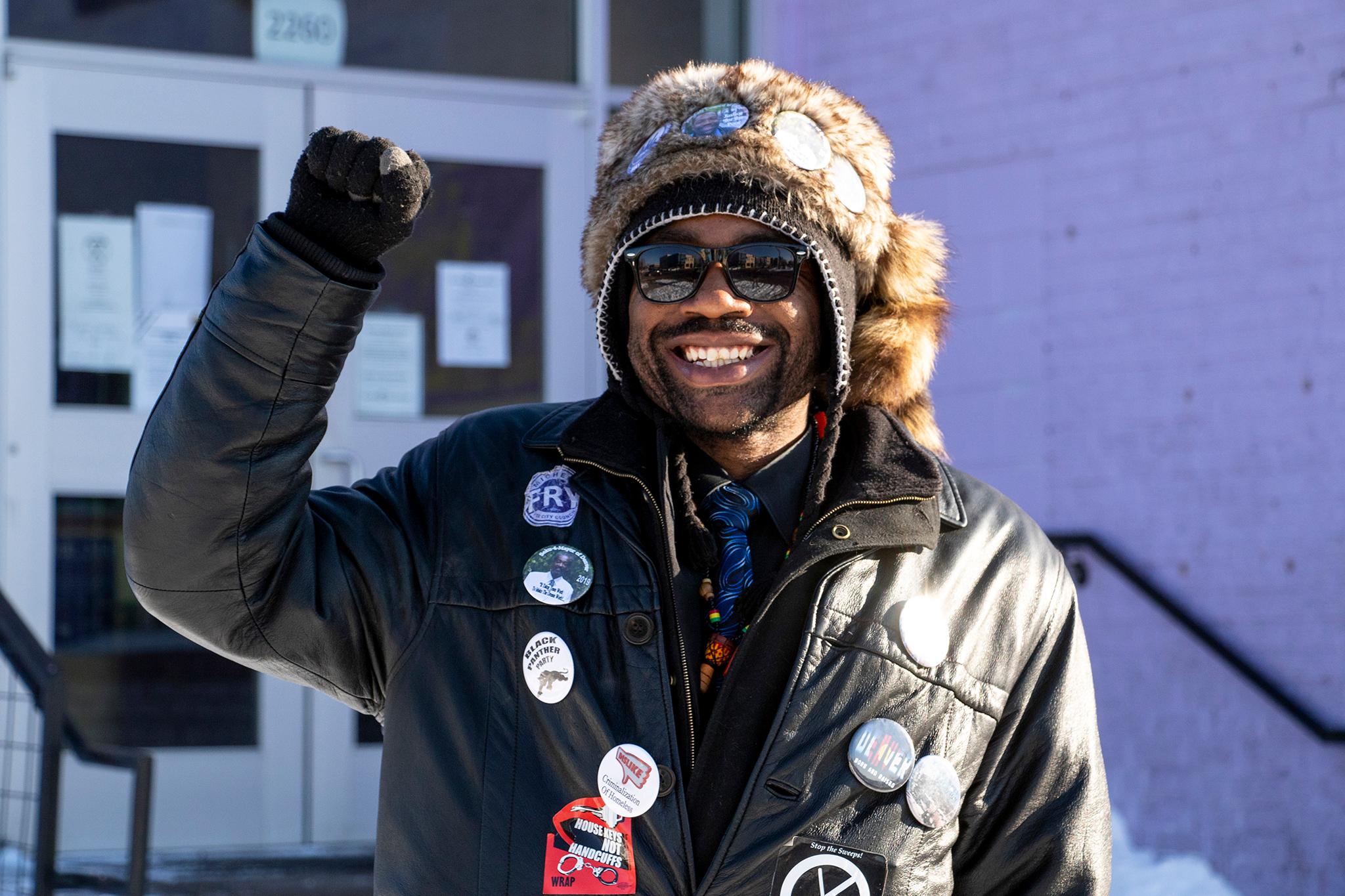
You'll find him at Denver City Council legislative meetings about as often as the council members themselves. He speaks at nearly every public hearing, often against changes to property rights that allow more apartments and condos. Sometimes he supports projects with affordable housing elements and backyard cottages known as accessory dwelling units.
"We need to prioritize our development," Parris said. "Currently our development is not for people who live here or who have lived here for generations. It's for newbies and transplants that are recently moving in or on our way to moving in."
Parris, a member of Denver Homeless Out Loud, tosses out catchy refrains when criticizing current elected leaders. He's quick to call Denver the "Mile High Income City" and tell Denverites that "we need to sweep the council like they sweep the homeless," referring to the city's ban on urban camping.
Parris is familiar with being unhoused. He graduated with a degree in criminal justice and criminology from Metropolitan State University, but almost did not, because he lived in a car during his last semester. He wants to repeal the urban camping ban (if voters don't do it themselves this May) and sees the "sweeps" as a way to criminalize homelessness.
On the housing side, the candidate says he would require at least half of every new development to include housing affordable to people making between zero and 30 percent of the area's average income -- a radical departure from a system that lets developers opt out of building affordable homes if they contribute to an affordable housing fund. Parris said he would nix that option.
Public transit is another big issue for Parris, who was born and raised in Denver. The Regional Transportation District does not meet citywide needs, he says, and focuses too much on suburbs. He'd like to see Denver start its own transit entity solely for the city proper.
If elected, Parris says he will forgo half of his (rather significant) salary.
"I will donate half of my salary back to the public," he said. "We are used to dealing with the minimum amount. We are poor, currently, so we have no qualms about remaining poor... my whole purpose of running for office is so I don't forget where I came from."
Johnny Hayes
Hayes is an artist and historian who wants to focus on homelessness, mental health and renter protections, as well as the advancement of Denver's deaf community. He has volunteered with Denver's child and homeless population since the early 2000s, he said.
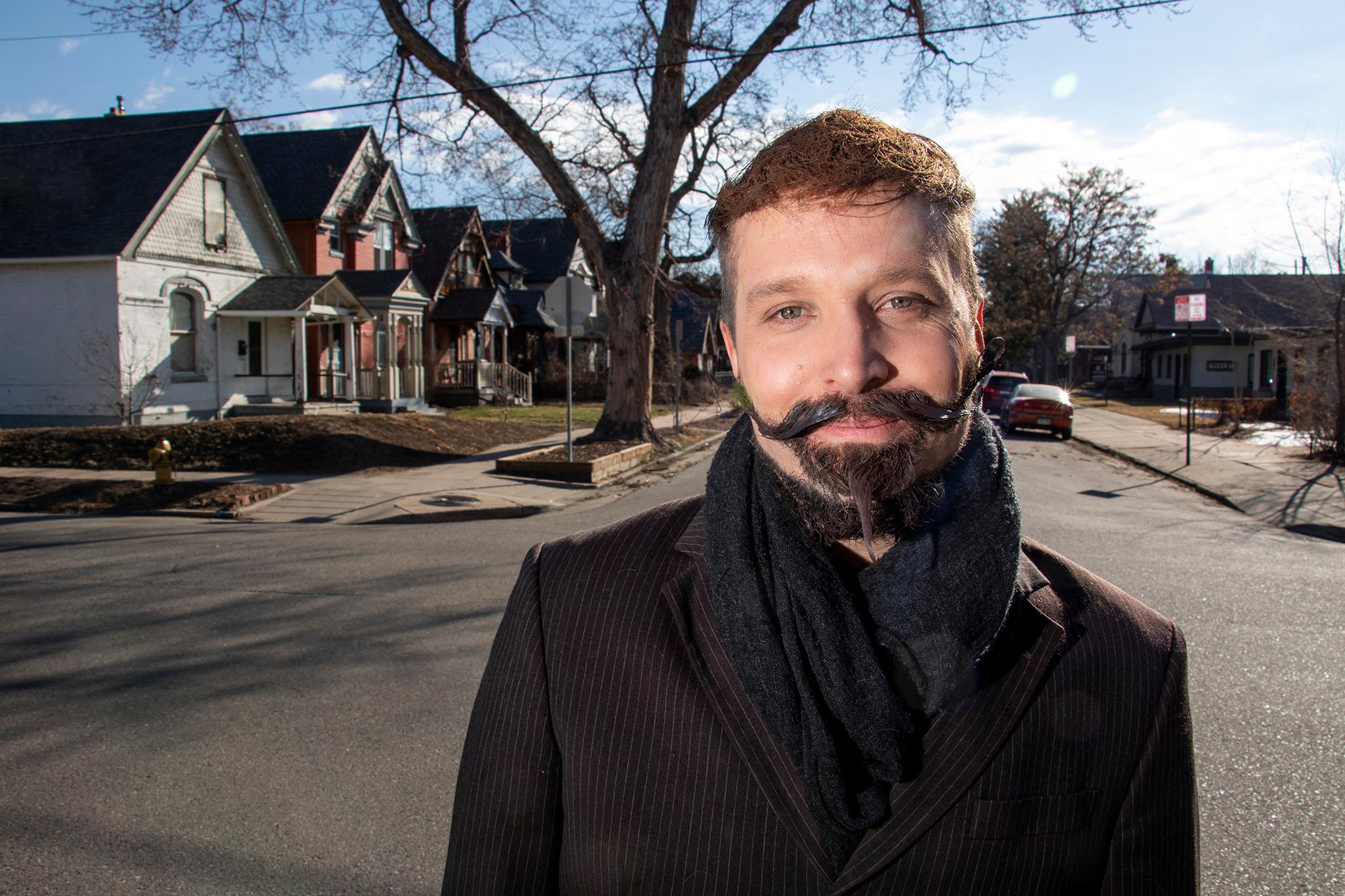
"Through my years, I've recognized what I call solvable or fixable problems that really needed to be addressed," Hayes said.
According to the candidate, those problems revolve around people needing homes and not having them, so they end up on the street or in shelters. Aside from giving residents basic necessities like shelter, water and food, his primary goal is to ramp up Denver's mental health services for people without homes.
"From my opinion, 100 percent of the population needs mental health care, it's just to what degree," he said. "So providing mental health treatment is big for me, especially for someone who is in a more perpetual cycle of homelessness."
If elected, Hayes says he would protect renters with unspecified policies that would give them more rights to stay housed. He claims he would institute rent control, which is currently illegal under state law.
"Educating hearing people about the deaf community" is another one of Hayes' goals, he said.
Lynne Langdon
Langdon is a newcomer to Denver's civic scene. Formerly a weather reporter and real estate agent, she now runs her campaign full-time. She lives in Cherry Creek, but spent several years in Hong Kong and was raised in Boulder.
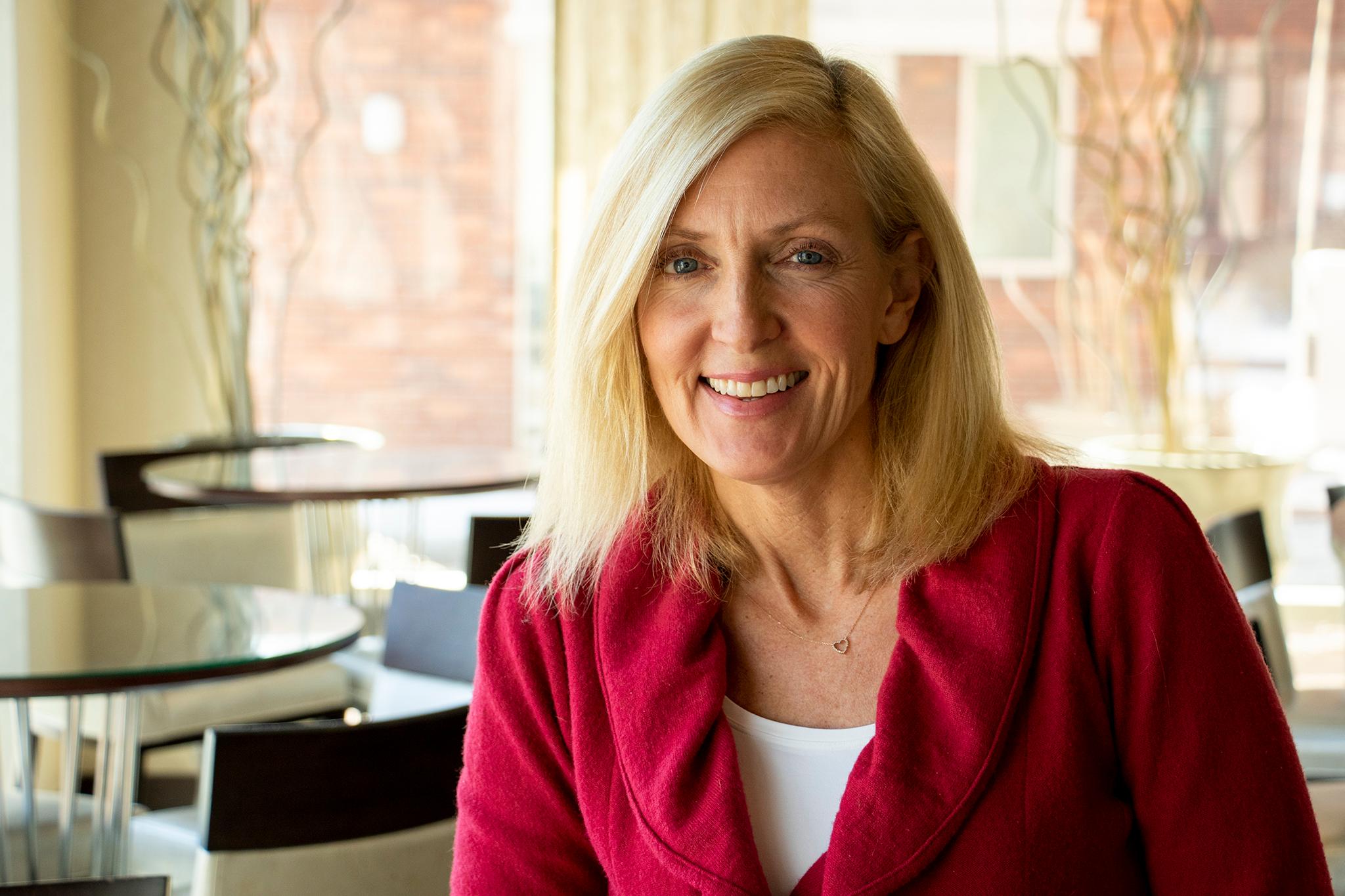
Two things Langdon is definitely against: supervised use sites, also known as safe injection sites, which let drug users ingest under the watch of medical professionals to stop overdoses, and letting people without homes sleep on public streets. She supports the ban on urban camping.
But on the whole, Langdon thinks Denver's doing pretty well. She does not have many specific policy goals -- she's more interested in scoping out the landscape and reacting in the way she thinks best.
"I don't think my job is to have all the answers," Langdon said. "I think my job is to listen to the people and to do and incorporate what the people want. That's how I see my job."
The candidate is interested in improving public transportation by amplifying RTD's advertising budget to show people transit is an option. The City Council has no control over RTD's coffers, but Langdon said her influence and ability to partner with others will do the trick.
So what qualifies her? She's worked in luxury real estate, which she says makes her "a really great mediator" and says her "intercultural experiences" will guide her politics.
"You have to find a way to bring these two sides together and just calm everybody down and get everybody to the finish line," Langdon said.
The candidate apparently knows about finish lines. She personally collected every signature she received to qualify her for the election, she said.
Oh, and Langdon knows John Elway and his wife, which she said is a "character reference."
Who's got money?
Five candidates have filed campaign finance reports. Click on the candidate's name to do a deeper search on who is giving them money.
Kniech has raised $116,000, including in-kind donations.
Ortega has raised $89,000, including in-kind donations.
Pigford has raised $57,000, including in-kind donations.
Parris has raised $500.
Langdon has raised $44, all out of her own pocket.
Hayes has not yet filed a campaign finance report.














